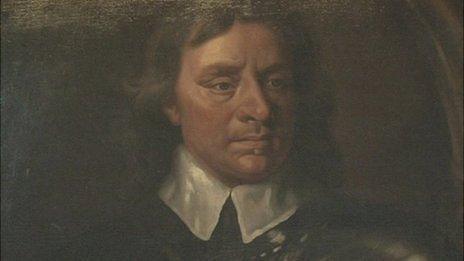Huntingdon's Oliver Cromwell museum is 60 years old
- Published
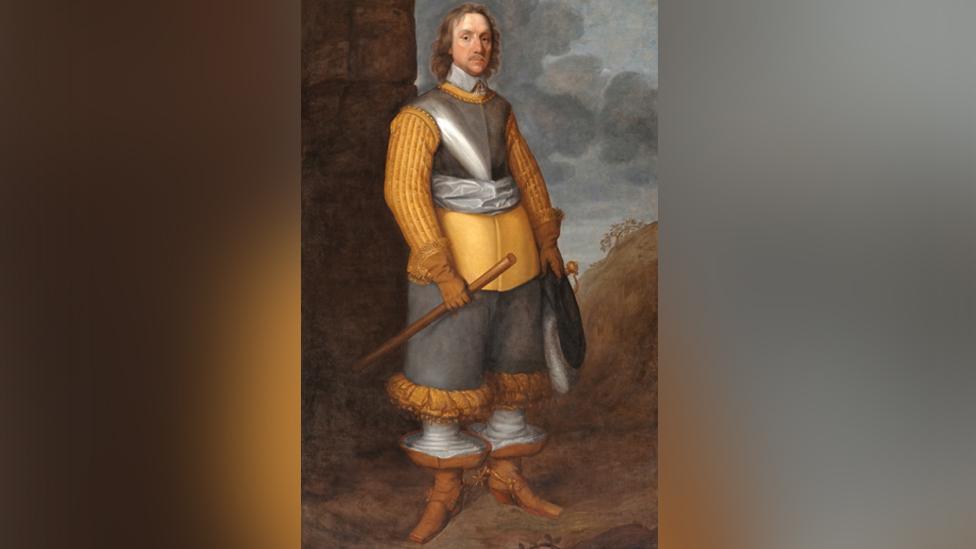
Oliver Cromwell was born in Huntingdon in 1599 and lived in present-day Cambridgeshire until the Civil War in the 1640s
A museum created to tell Oliver Cromwell's "warts and all" story is marking its 60th anniversary.
Housed in Cromwell's former school in Huntingdon, Cambridgeshire, it contains nearly 1,000 objects connected to England's only republican leader.
The museum opened in October 1962, the year of the Cuban Missile Crisis and the Beatles' first TV appearance.
Curator Stuart Orme said the 17th Century Civil War leader was "hugely significant".
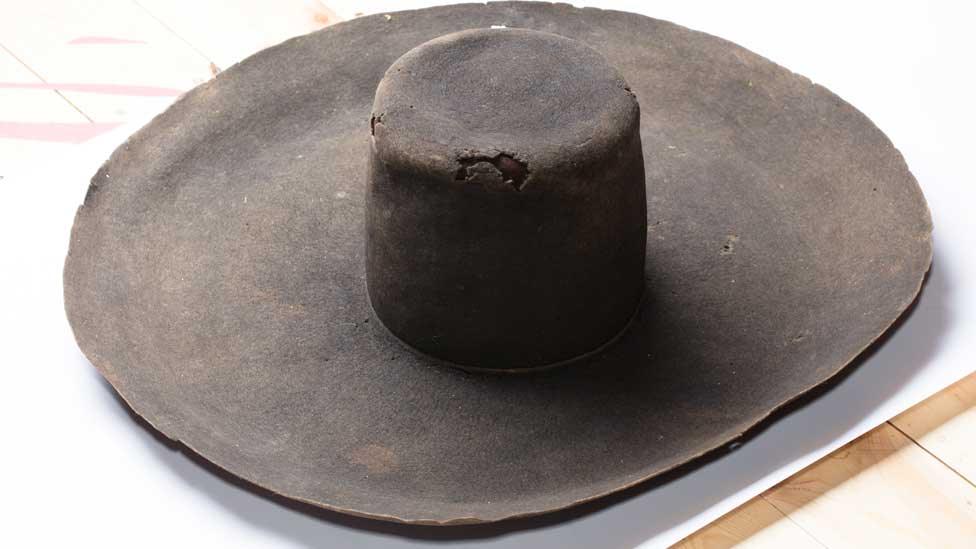
Cromwell is believed to have owned this hat which is among objects in the museum's collection
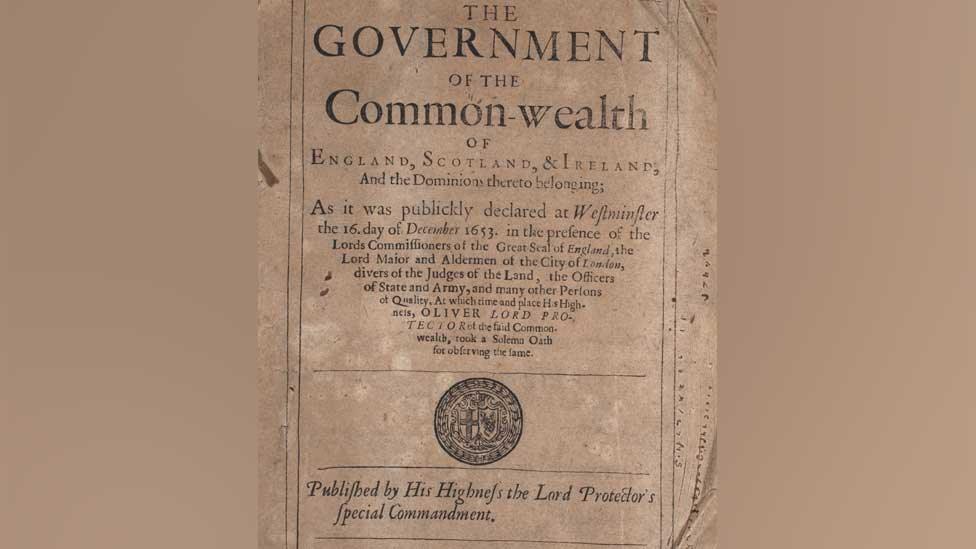
It also has a copy of the written constitution created for Lord Protector Cromwell's republic
The town - and country - initially turned its back on Cromwell's story following the restoration of the monarchy in 1660.
Mr Orme said: "In the late 18th Century, he gets reinvented as a champion of democracy and then in 1845 Thomas Carlyle publishes his letters and speeches, external and he becomes almost a hero to the Victorians, who find his religious ideals very attractive."
However, a proposal to put up a statue to Cromwell in his home town was rejected by "high church" Huntingdon, which still favoured a Charles I-style church.
Instead, the statue went to neighbouring St Ives, where the Puritan is believed to have gained his deep, Christian faith.
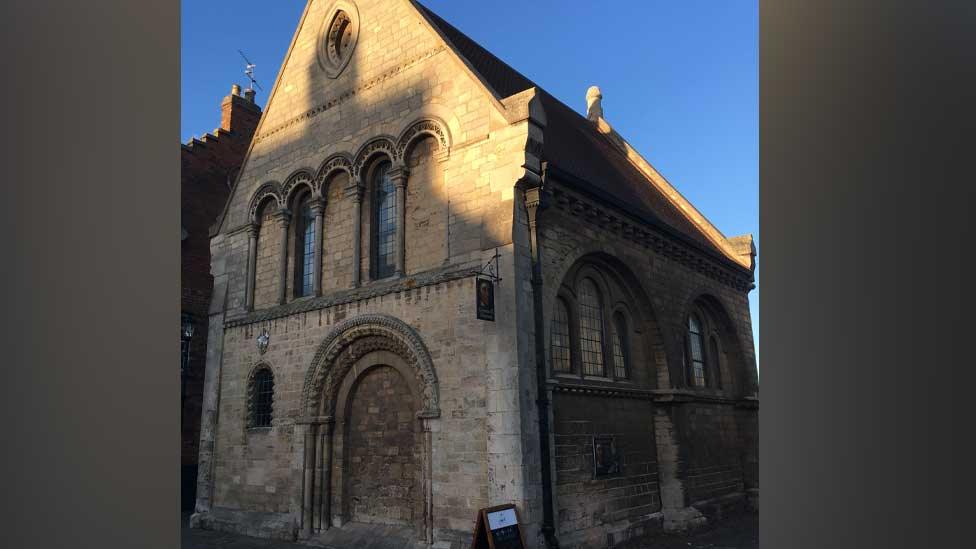
Cromwell attended the town's grammar school from 1610 to 1616
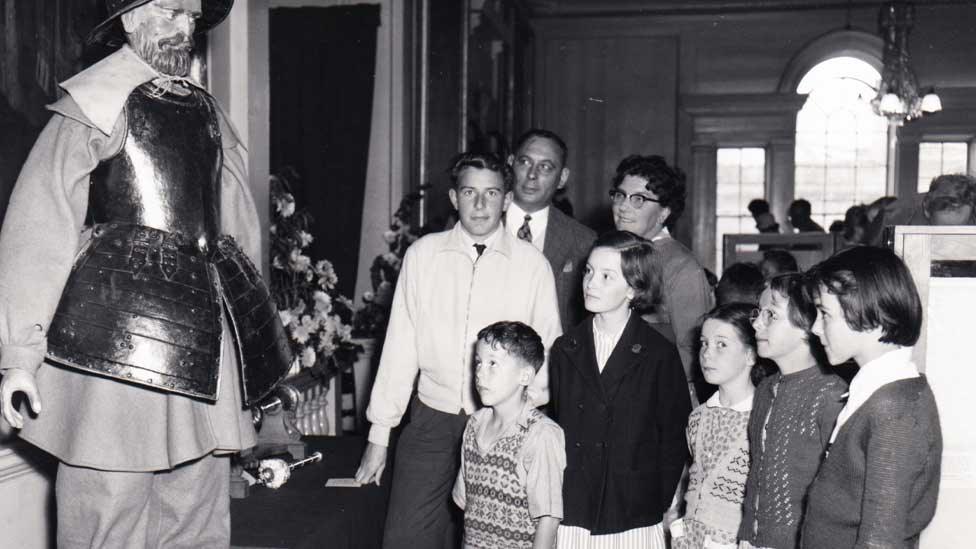
Interest grew in the idea of a permanent Cromwell museum after a popular exhibition was held in Huntingdon to mark 300 years since his death
He grew up in Huntingdon, but in the 1620s had begun a financial decline and he left the town to become a St Ives tenant farmer.
Inheriting property in Ely restored his fortunes and his unexpected military ability elevated him to the top ranks of the Parliamentarian leadership.
"Huntingdon only rediscovered Cromwell in the 20th Century, when an exhibition was held to mark the 300th anniversary of his death in 1958," said Mr Orme.
It proved so popular, a permanent museum was created.
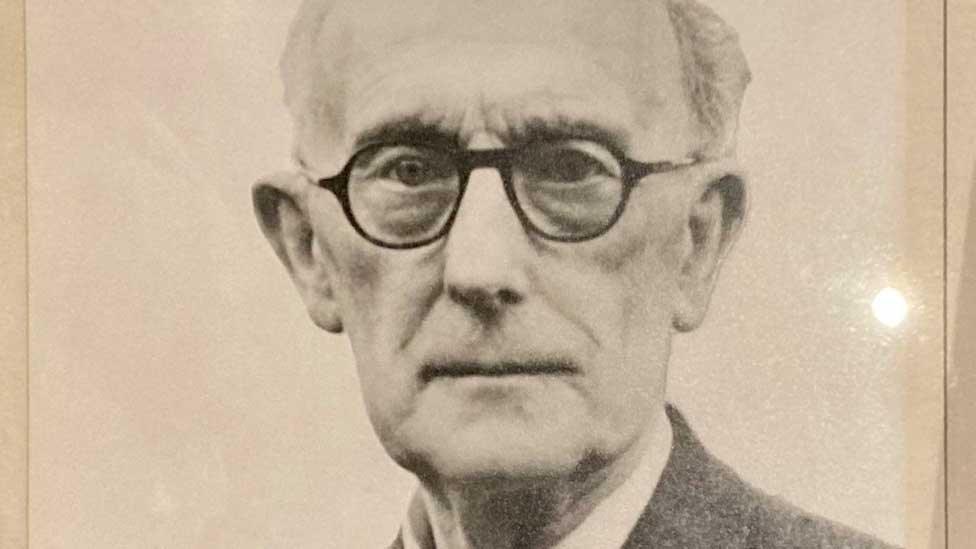
Dr Edward Powley, a member of the archives committee of the former Huntingdonshire County Council, helped set up and run the museum
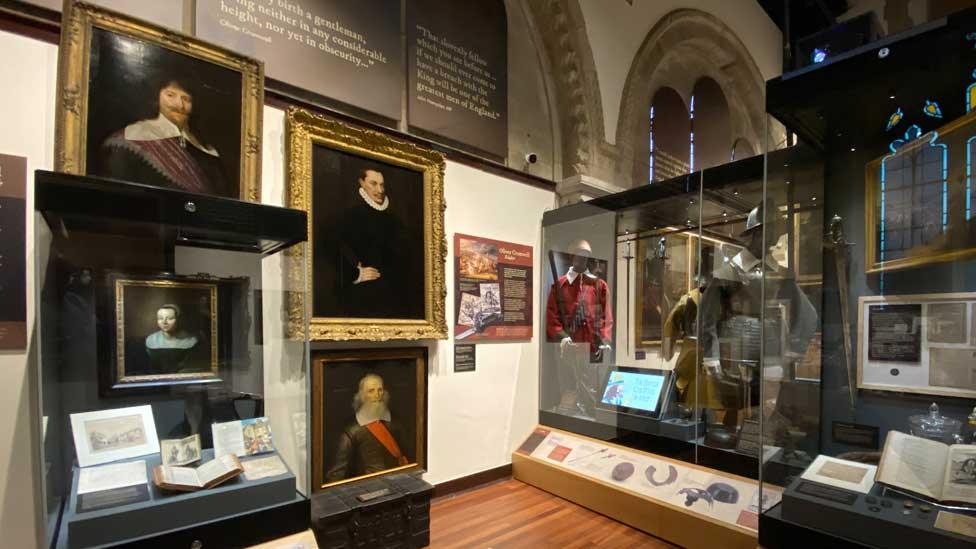
It is now packed with portraits, documents, three of the four swords known to have been owned by Cromwell and memorabilia
The museum continues to acquire material associated with Cromwell.
Just last week, it was donated a copy of a pamphlet by a disillusioned former colleague of the Lord Protector, calling him a tyrant and plotting up to five assassination plots "each more catastrophic than that last", said Mr Orme.
"It's our job to tell his story, warts and all, external, some love him, some hate him," he added, referencing a phrase attributed to Cromwell who instructed his portraitist to include "warts and all".
"And this period of history raised all sorts of questions about freedom of the press, religious toleration, democracy, colonisation, the relationship with Ireland and the position of women - many of which we are still wrestling with in 2022."
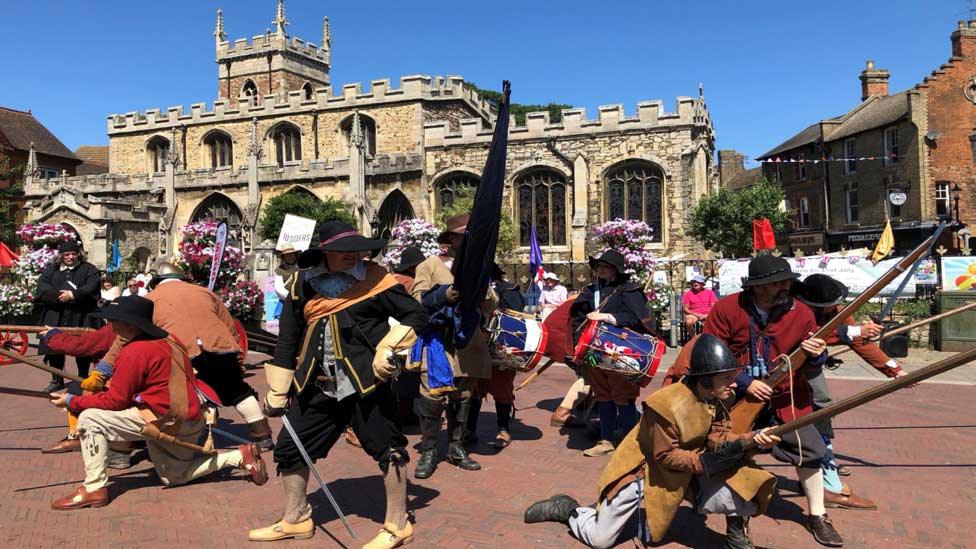
Civil War re-enactors the Sealed Knot

Find BBC News: East of England on Facebook, external, Instagram, external and Twitter, external. If you have a story suggestion email eastofenglandnews@bbc.co.uk, external
Related topics
- Published8 May 2022
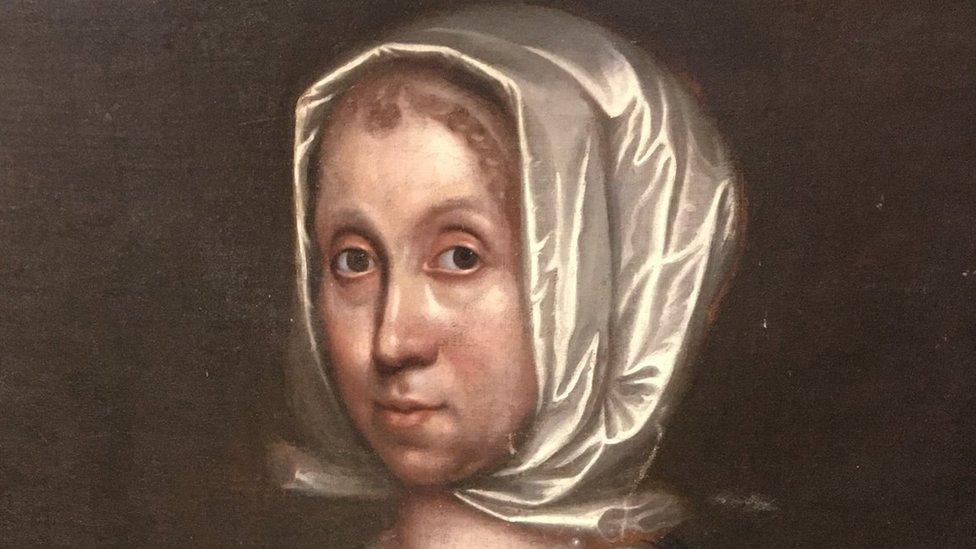
- Published31 October 2021
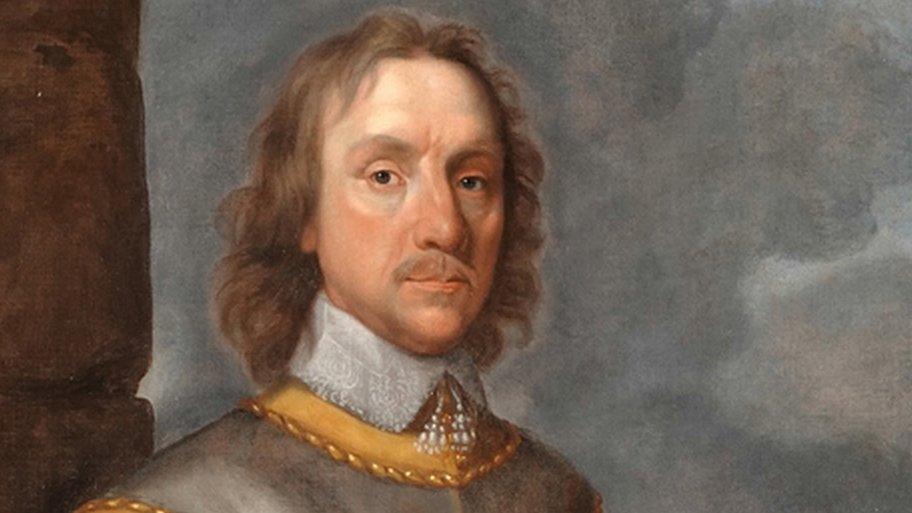
- Published15 February 2020
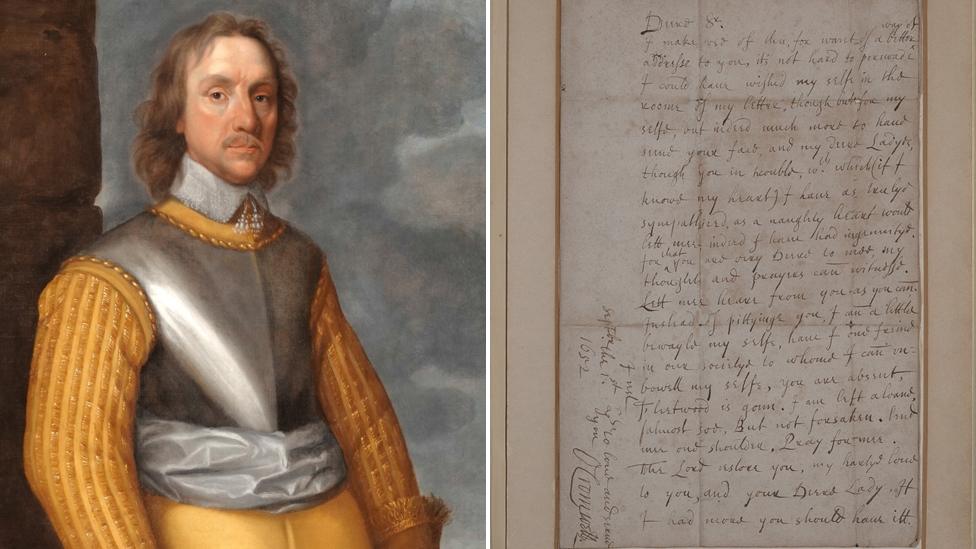
- Published18 February 2014
